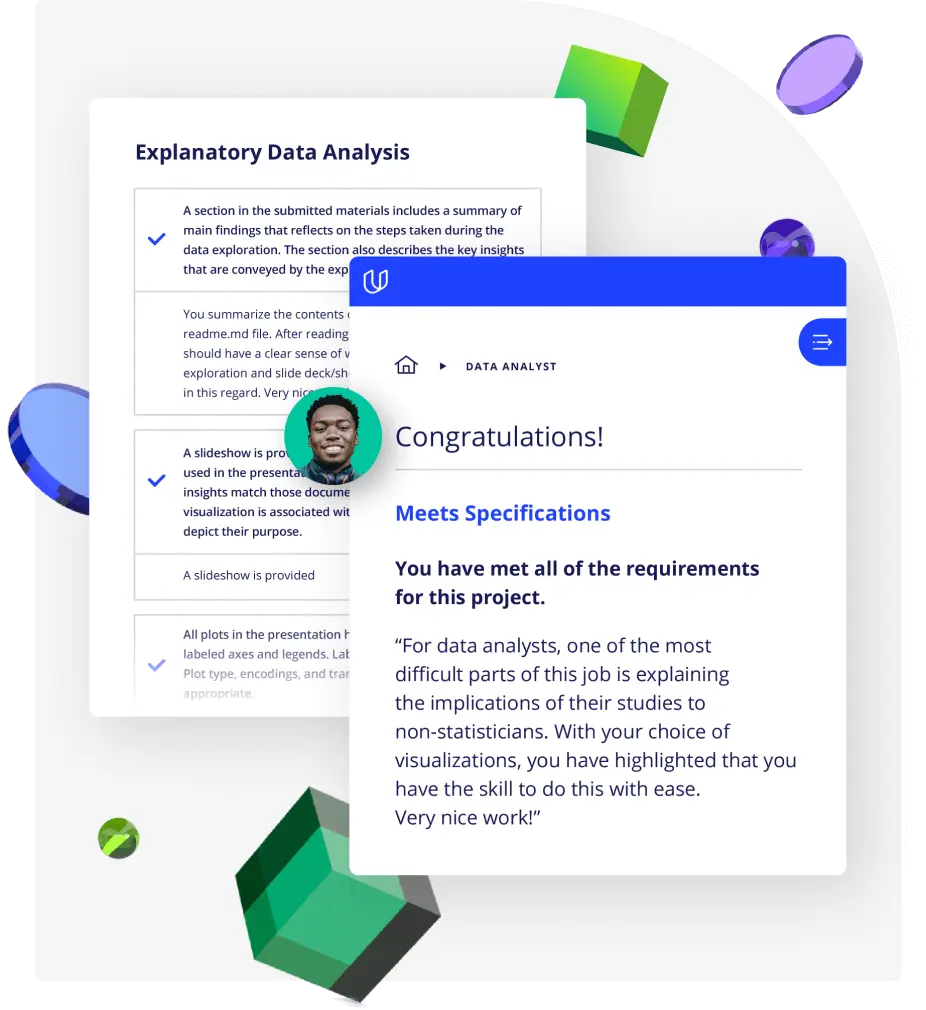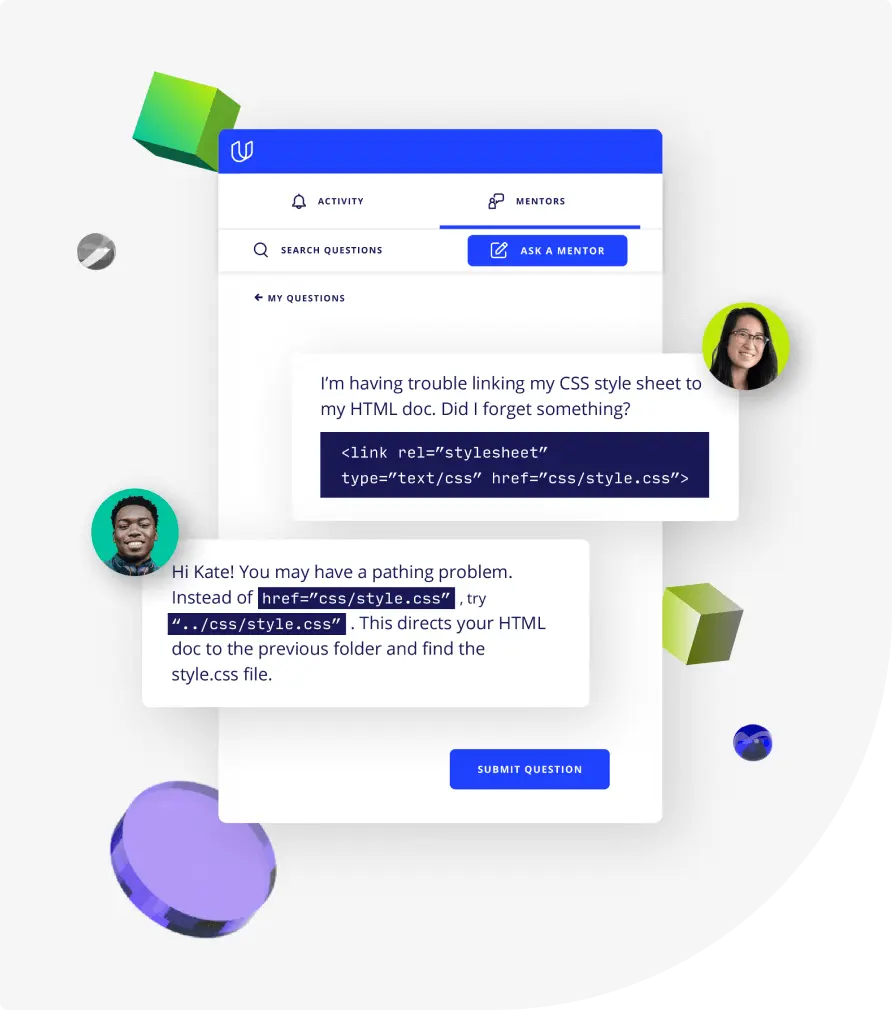Lesson 1
Intro to Experimental Design & Recommendations Engines
Why do we care about experiment design and recommendation engines? In this lesson, you'll get an overview of the topics you'll learn in this course.

Course
Learn to design experiments and analyze A/B test results. Explore approaches for building recommendation systems.
Learn to design experiments and analyze A/B test results. Explore approaches for building recommendation systems.
Built in collaboration with
IBM
Advanced
1 month
Real-world Projects
Completion Certificate
Last Updated February 17, 2024
Skills you'll learn:
Prerequisites:
Lesson 1
Why do we care about experiment design and recommendation engines? In this lesson, you'll get an overview of the topics you'll learn in this course.
Lesson 2
In this lesson, you will learn about conceptual topics that must be considered when designing and running an experiment, in order to ensure good, interpretable results.
Lesson 3
In this lesson, you will learn how statistics can be used to benefit the design of an experiment, as well as additional statistical tests that can be used to analyze results.
Lesson 4
In this lesson, you will go through an A/B Testing case study to see how the conceptual and statistical concepts covered in the previous lessons can be applied in experiment designs.
Lesson 5
In this lesson, you will analyze data that was originally used in screening interviews for data scientists at Starbucks.
Lesson 6
In this lesson, you will learn about the different methods used to create recommendation engines.
Lesson 7
In this lesson, you will learn how machine learning is being used to make recommendations.
Lesson 8 • Project
Put your skills to work to make recommendations for IBM Watson Studio's data platform.

Staff Data Scientist
Josh has been sharing his passion for data for over a decade. He's used data science for work ranging from cancer research to process automation. He recently has found a passion for solving data science problems within marketplace companies.

Data Analyst Instructor
Mike is a content developer with a multidisciplinary academic background, including math, statistics, physics, and psychology. Previously, he worked on Udacity's Data Analyst Nanodegree program as a support lead.
Combine technology training for employees with industry experts, mentors, and projects, for critical thinking that pushes innovation. Our proven upskilling system goes after success—relentlessly.

Demonstrate proficiency with practical projects
Projects are based on real-world scenarios and challenges, allowing you to apply the skills you learn to practical situations, while giving you real hands-on experience.
Gain proven experience
Retain knowledge longer
Apply new skills immediately

Top-tier services to ensure learner success
Reviewers provide timely and constructive feedback on your project submissions, highlighting areas of improvement and offering practical tips to enhance your work.
Get help from subject matter experts
Learn industry best practices
Gain valuable insights and improve your skills

Unlimited access to our top-rated courses
Real-world projects
Personalized project reviews
Program certificates
Proven career outcomes
Full Catalog Access
One subscription opens up this course and our entire catalog of projects and skills.
Average time to complete a Nanodegree program
3 weeks
, Advanced
4 weeks
, Intermediate
3 months
, Beginner
3 weeks
, Beginner
(272)
2 months
, Intermediate
1 month
, Advanced
1 day
4 weeks
, Advanced
4 weeks
, Beginner
3 weeks
, Intermediate
(1194)
2 months
, Beginner
1 hour
, Discovery
4 weeks
, Beginner
(807)
2 months
, Beginner
(124)
5 months
, Beginner
1 month
, Beginner

Experimental Design and Recommendations
3 weeks
, Advanced
4 weeks
, Intermediate
3 months
, Beginner
3 weeks
, Beginner
(272)
2 months
, Intermediate
1 month
, Advanced
1 day
4 weeks
, Advanced
4 weeks
, Beginner
3 weeks
, Intermediate
(1194)
2 months
, Beginner
1 hour
, Discovery
4 weeks
, Beginner
(807)
2 months
, Beginner
(124)
5 months
, Beginner
1 month
, Beginner